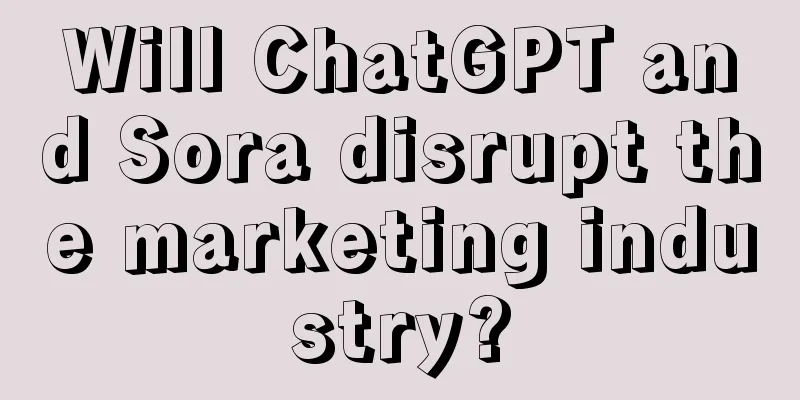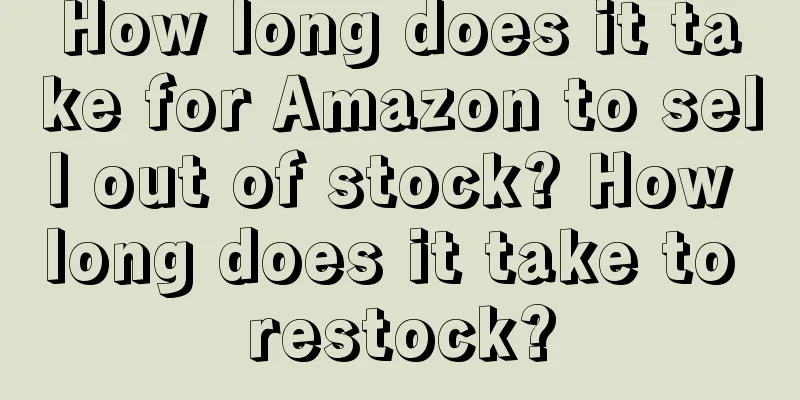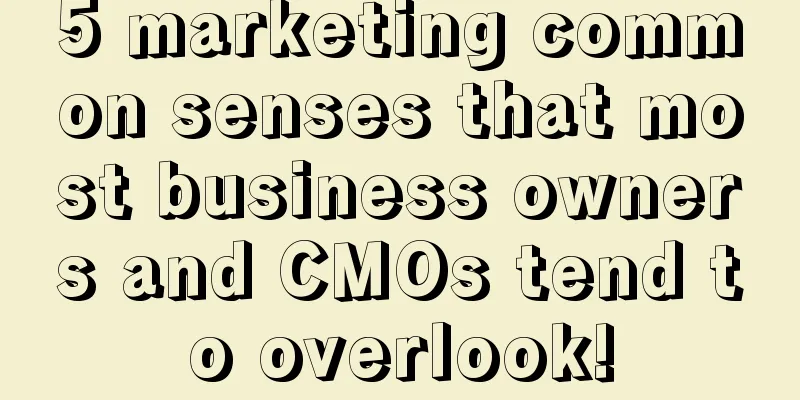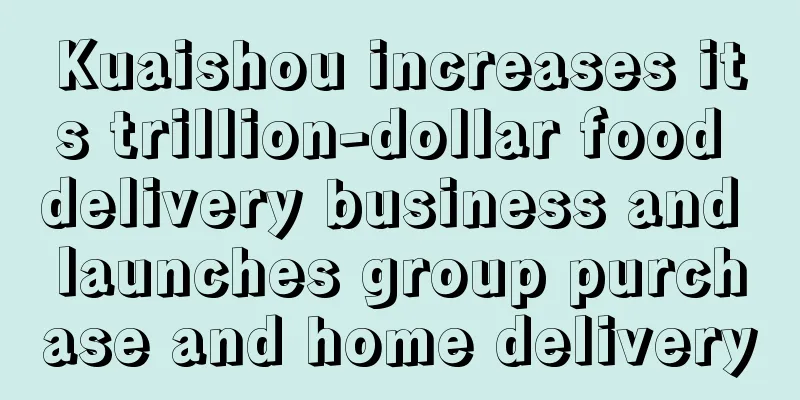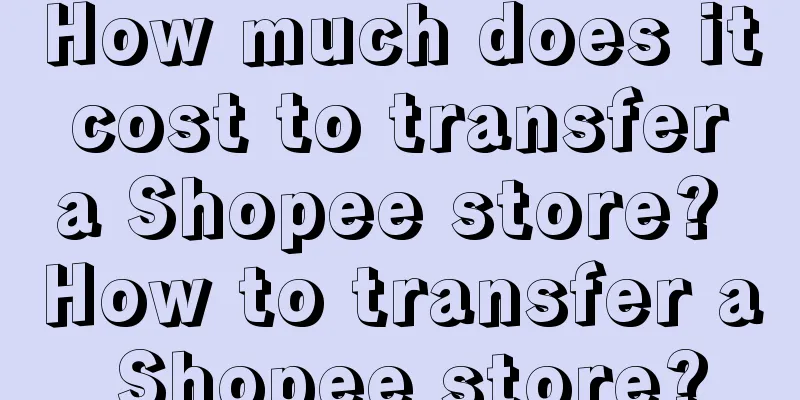The louder you curse, the bigger the discount!
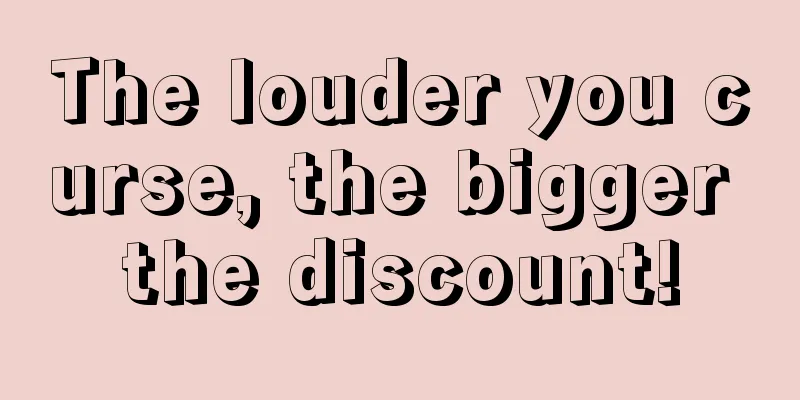
The omnipotent netizens have discovered a universal discount code. It was not some auspicious number like 666666 or 888888, nor was it any flattery like "the platform is the best". Instead, it was a barrage of invective. After you complain about some manufacturers on social platforms, wait a while and you will soon receive positive feedback. Whether it is a well-reasoned complaint or a fierce verbal abuse, as long as the key words are identified by big data, the merchant's condolences will come: in the APP that you just scolded, a large coupon is lying quietly, waiting for you to open the lowest price. This phenomenon gives me a sense of déjà vu as described in classical Chinese: Those who can slander and criticize in the market and let me hear it will be rewarded. Whenever users get angry, manufacturers who smell the wind will more or less come out to show their stance and send out some "PR coupons" to win over users. And through their years of spending experience, users have gradually discovered more than one way to get extra PR coupons from manufacturers and get more benefits. The trick is the eight-character mantra:
1. How to receive PR couponsDiscounts are like wet sponges. If you squeeze them, water will always come out. If you are wealthy and don't care about the price, you can buy goods and services at full price. If you are more concerned about the price, you can get a good price relative to the original price by participating in shopping festivals, discounts, and coupons. If you deeply understand the secret of careful budgeting, watch the clock strike 0:00 and start the flash sale, and send the page to all your friends and family to bargain for a discount, then perhaps you can get the best price. In essence, this is a price discrimination strategy of the manufacturer, serving different prices to different customers so that the product can be sold at a higher price. Manufacturers are snobbish and will never treat users equally. The same goes for PR coupons. The more you curse the manufacturer and the greater the negative impact you bring to it, the more it will value your existence and give you more care. 1. Those who contact customer service directly will be rewardedProducts have defects, services are not timely enough, announcements are a bit arrogant... Sometimes there are many ways for manufacturers to offend users. Life is different for everyone, and annoyed users will react differently. Some users are calm or think their time is precious and don't want to waste time arguing over a few dollars. Even if they are dissatisfied, they will just bear with it. But there are also many times when users need to vent their dissatisfaction. The first thing to do is to find customer service. If you just complain a few words, the customer service will try to appease you. Of course, most of the words of appeasement are pre-written and lack sincerity. But if the user keeps complaining or directly asks for compensation, customer service will come up with some compensation measures to help the user calm down. From complaints to compensation, some users were inspired in the process. If you don't complain, you will get nothing. On the contrary, a few words of complaint can win you extra benefits. These discounts are additional benefits independent of the platform’s own discounts and return compensation. So, if you get mad every once in a while, and yell at customer service even if you’re not really dissatisfied, can’t you get more discounts? What you save is what you earn. Some people saw an opportunity in this. However, although customer service has some authority to compensate and appease customers, the space is extremely limited. Apart from a fair refund based on the product's selling price, there is not much additional compensation available. Usually they are some coins, beans, or coupons, some virtual assets that can only be used on this platform, and the amount is very low, nothing more than 85 cents. As a result, some people have discovered more productive methods. 2. Those who slander others in the market will be rewardedGenerally speaking, if a user finds customer service to complain, it means that he or she is dissatisfied. But the impact of this dissatisfaction is often very limited. Even if you leave it alone, some people will just complain and forget about it. Users who will continue to expand their dissatisfaction are rare. However, there are still some users who will publicize the product’s dark history to others and even vent on public platforms. As the power of the Internet grows, manufacturers are paying more attention to this phenomenon, and the continuous advancement of big data has given manufacturers the means to solve this problem. Through keyword recognition and identity connections between users on different platforms, the data can reveal who are the people saying bad things behind someone’s back. It would be more targeted to give these people some extra preferential benefits to appease and win them over. However, users who coincidentally discovered such measures taken by manufacturers have also developed a new way to take advantage of them - cursing. On some social media platforms, people can vent their complaints about a platform in order to receive PR coupons from the platform. Moreover, this technology is constantly improving through sharing and dissemination by users. People have concluded that which platforms are more likely to capture and identify which manufacturers are most likely to post comments on them, and which keywords can increase the probability of obtaining coupons. Some people have directly written fixed templates for everyone to copy and use; and some people have set up a forum on social media to curse each other, where everyone copies the templates and curses together to increase the chances of being recognized. For a time, this method of obtaining coupons became popular. But for some people, the benefits they get seem not enough. 3. Those who slander and ridicule others in the market and are watched by others will be rewarded.There are always some incidents of poor service that will trigger some public opinion trends on the Internet. Whether because the event itself is bizarre and interesting, or because most users have encountered it and can empathize with it, when negative news is flying around like snowflakes, manufacturers still have to stand up and welcome the blizzard. Some manufacturers are indeed tough. Even if they are scolded by the whole network, they still act like an innocent person and completely shirk their responsibilities. However, manufacturers with a long-term vision also need to consider their future survival and fear the power of public opinion. At this time, they will show more sincerity to solve the troubles of the parties involved, make more compromises and provide more compensation. Some people received compensation far exceeding the selling price, and some people received lifetime free rights from the manufacturer. But as long as the momentum of public opinion is curbed and users can regain their patience, these costs are trivial. 2. Manufacturer’s ChoiceWhether it is giving customer service the authority to appease customers, using big data to identify dissatisfied users, or making excess compensation when big troubles arise, the manufacturer's decision is not made on a whim, but is the result of careful consideration. The first is the way of appeasement. Unless it is a typical incident with serious conflicts, manufacturers generally prefer to use vouchers, virtual currency and other methods to appease users. 1. Why use coupons?1) Low compensation cost Is there any difference between refunding 5 yuan in cash and giving a 5 yuan voucher? Of course it is different. For the platform, the 5 yuan spent is the full cost. Vouchers, even those with no threshold of 5 yuan, can only be used on the platform to purchase products or services on the platform. Even if the user spends exactly one cent more or one cent less and buys something worth 5 yuan, the platform's profits and fees must still be calculated in the 5 yuan. In other words, the cost of the platform compensating users with 5 yuan vouchers is definitely lower than 5 yuan in cash. 2) High compensation benefits After users receive the vouchers, they use them, which is also an opportunity for the platform to retain users. In the process of choosing how to use and exchanging goods and services, users relive the product usage process and the experience of having their needs met. Users who originally planned to switch to competing products at any time due to disagreements will easily stay after reviewing the advantages of the product and follow their habit. Just like a kiss after a breakup, sometimes it can save the relationship between two people. 3) Maintaining your own system Every manufacturer has its own rules and systems. However, actual service situations are ever-changing and may conflict with established rules. For example, the manufacturer stipulates that monthly memberships cannot be refunded. Some users are not satisfied with the service when the subscription expires and want a refund. The manufacturer needs to maintain its own rules, otherwise other users will see it and it will lead to a chain reaction of more refunds. At the same time, the manufacturer also needs to appease the refunding user and show a service attitude. At this time, coupons are a compromise, which not only protects the rules to a certain extent, but also allows most complaining users to calm down. Issuing coupons is a means, but what is more important is why manufacturers choose to do so. The more harshly the users curse, the more discounts the manufacturer gets. Isn't this encouraging users to curse more? 2. Manufacturer’s logic1) Center-oriented The butt determines the head. Manufacturers sit in their own luxurious office buildings, so naturally their heads will not be wholeheartedly thinking about users. The so-called "service first, customer first" is always just a slogan and a gesture. Take user complaints for example. If we truly consider it from the user's perspective, the relatively reasonable logic is to give more compensation to the user who has suffered the most damage, so as to minimize the user's losses. But in fact, what manufacturers consider is whoever causes greater harm to me, or whoever may cause greater harm to me, they will give priority to giving more compensation to that person in order to minimize their own losses. For example, for the same product quality issue, some users complain to customer service, while some users directly cause heated discussions online. When manufacturers discover these issues at the same time, the first thing they want to solve is often the problem that caused heated discussions online. First, users’ comments may influence other people’s decisions and discourage potential users. Second, users who complain on social media are obviously not prepared to endure, and are not satisfied. If their emotions cannot be calmed down, they are more likely to take further action, such as complaining to the media or to relevant departments. Third, on social media, especially some social media with a high degree of openness, if users’ complaints create a large-scale group effect, bringing together people who are dissatisfied with the manufacturer, the damage to the manufacturer will be even greater. Manufacturers are self-centered and take avoiding harm as their premise, so they will naturally give priority to and vigorously appease those users who are most likely to harm themselves. 2) Cost-oriented On the basis of being able to avoid harm, what manufacturers need to consider is to seek profits. Solving user after-sales, complaints, and complaints also costs money. As expense management becomes more and more sophisticated, these costs must also be planned. If a user is dissatisfied with a product defect, but apart from complaining to the customer service, he will not tell others, nor will he curse online, nor will he complain to the superior platform or department, and he may even continue to pay to use the product. Then, from the perspective of the manufacturer's interests, why should the manufacturer spend extra costs for this user? Especially since there are quite a few such users. Even though the current cost of protecting rights for users has been reduced, there are still many people who, either out of kindness, lack of time, or annoyance, endure minor problems and flaws. If all these problems need to be solved and solved proactively, the manufacturer's costs will definitely increase sharply. Regardless of seeking profit or avoiding harm, manufacturers always consider their own interests, rather than treating users equally and sincerely. Manufacturers continue to adopt the idea of price discrimination, focusing on appeasing difficult users and being perfunctory towards kind customers, in order to maximize their own profits. Bully the weak and fear the strong. However, although the manufacturer's plan is good, there is a loophole - it needs to be based on the premise that users are unaware of his routine. 3. Routines and Anti-routinesUsers are not fools. Someone will definitely discover the manufacturer's tricks. Even the public relations coupons quietly given out after big data identified social media were finally discovered by users through chance, bold guesses, and repeated arguments. When the unspoken rules are understood, familiar and mastered by users, they will also use these unspoken rules to counter the routines and gain greater benefits for themselves. This is how daily consumption looks like: Knowing that prices in online stores are generally flexible, you will bargain with customer service before shopping; if you find a price loophole where you can get a bargain, you will take advantage of it immediately. And when users find out that they can get a few yuan coupon by just scolding the customer service; and that if they scold a few words online, the manufacturer will give them extra discounts; and if they make a big deal out of it, maybe they can even try their luck and turn a bicycle into a motorcycle. Some users will choose to use these methods. Even after using them, they will never get tired of them. After all, who would be willing to buy at the original price when they have already enjoyed lower prices and greater discounts? Users are like discovering the magic of "up, down, down, left, right, left, right, BABA". They always want to use it and can't stop. 4. Anti-routine and anti-anti-routineThe best secret is the one that is not known. When users' anti-routines begin to take effect and spread on the Internet, manufacturers will naturally pay attention: Is anyone using similar methods to take advantage of me? 1. Teach people to pull themselvesManufacturers certainly don't want to see this phenomenon, because it will lead to some people who have not encountered bad service or felt dissatisfied, but will stand up and scold the manufacturers in order to obtain PR coupons. The emergence of this result is due to the flaws in the manufacturer's routine, which creates a reverse incentive for users. In "Zou Ji's Advice to the King of Qi", the King of Qi ordered that those who criticized him to his face would receive the biggest reward, while those who cursed him in public behind his back would receive the least reward. This is the correct incentive logic, encouraging people to speak up in person and not spread the word outside. The incentives for manufacturers are just the opposite. The louder someone curses and the greater the impact of their curses, the more benefits they will receive. Over time, users will be trained to develop SR conditioned reflexes: the harsher they scold → the more rewards they get → the harsher they scold. 2. Whether to manage or notUsers criticizing manufacturers for their unscrupulous practices has not yet become mainstream. The manufacturers' established strategies are not entirely full of loopholes, and there are still many advantages that are beneficial to them. Whether this idea should continue or not, manufacturers also need to weigh the following: 1) Balance of Inflow and Outflow Not all users will take advantage of this loophole. At least at the current stage, most netizens are just curious, watching, and hoping for this fierce way of getting free stuff, but not many people actually put it into practice, or even repeat it over and over again, so the extra cost to manufacturers is still within an acceptable range. As long as the money saved by "bullying the weak" is greater than the extra money spent by "fearing the strong", manufacturers will still be profitable and can continue. 2) Deal with it based on your emotions The occurrence of problems does not necessarily require the entire strategy to be dismantled and started over again. The public has ways to counter routines, and manufacturers also have ways to counter counter routines. For example, more refined situational processing, using big data to identify people who frequently receive PR coupons, to determine whether they are just unlucky and frequently encounter product problems; or are deliberately trying to get free products, or even illegally. Take specific measures based on actual conditions to reduce expenditures. After all, the practice of taking advantage of others also follows the Pareto principle. The vast majority of the benefits are actually taken away by a small number of people. There is no perfect strategy, but being able to solve key problems is victory. Author: Mo Tao |
>>: Fake charity short video, a mess
Recommend
Double 11 fierce competition for "the lowest price on the entire network" has caused a surge in orders for small and medium-sized merchants
The annual Double Eleven "battle" is her...
How much points will be deducted from sellers on Amazon Japan? What are the setting tips?
There are many sites on the Amazon platform, and t...
Dopamine outfit on the left hand, MBTI personality on the right hand, young people who are labeled
Recently, the term "dopamine dressing" h...
Activating existing customers: Common paths for banks to add micro-enterprise customers
In the current digital transformation, many banks ...
What to do if Amazon warehouse capacity is insufficient? How to deal with it?
When opening a store on Amazon, some merchants fin...
With over 66 million members and one of the top 3 new tea brands in China, how does Chabaidao operate its private domain?
This article analyzes and explains Chabaidao's...
Short play: Pitcher manages money: "Spend money like water", loses 100,000 in one night
The trend of short dramas in 2023 is booming and s...
How to take advantage of AIGC concept dividends? 8 major brands + 4 marketing service providers give reference answers
Introduction: It is better to take action than to ...
Is it necessary to advertise on Shopee? How can I place orders quickly on Shopee?
Nowadays, more and more merchants choose to engage...
How about Shopline independent website? Advantages
I believe some merchants have heard of Shopline, b...
Can I use domestic credit cards to receive payments on Shopee? How do I bind a card?
More and more merchants are opening stores on Shop...
What are Amazon's overseas sites? How many overseas sites are open to Chinese sellers?
Amazon, as a giant in the global e-commerce field,...
Several core essences of Xiaohongshu's popular article notes
There is a core essence behind the popular notes o...
How to get an Amazon bank statement? Where to get it?
If Amazon merchants need to verify their bank acco...
My minimalist information management method
Information needs to be managed because it is high...

